Living in Brazil as an expat can be an exciting and enriching experience. Brazil is known for its vibrant culture, beautiful beaches, and friendly people. As an expat, you can immerse yourself in this unique culture and explore all Brazil offers.
In this guide:
- The legalities of moving to Brazil: visas and residency options.
- The cost of living: monthly expenses, rentals, and real estate.
- Brazil as a retirement destination.
- Infrastructure: travel connections, public transport, internet.
- Housing and real estate
- Healthcare and education.
- Taxes and bank accounts.
- Where to live in Brazil – an overview of the most popular expat locations.
- Tips for moving.
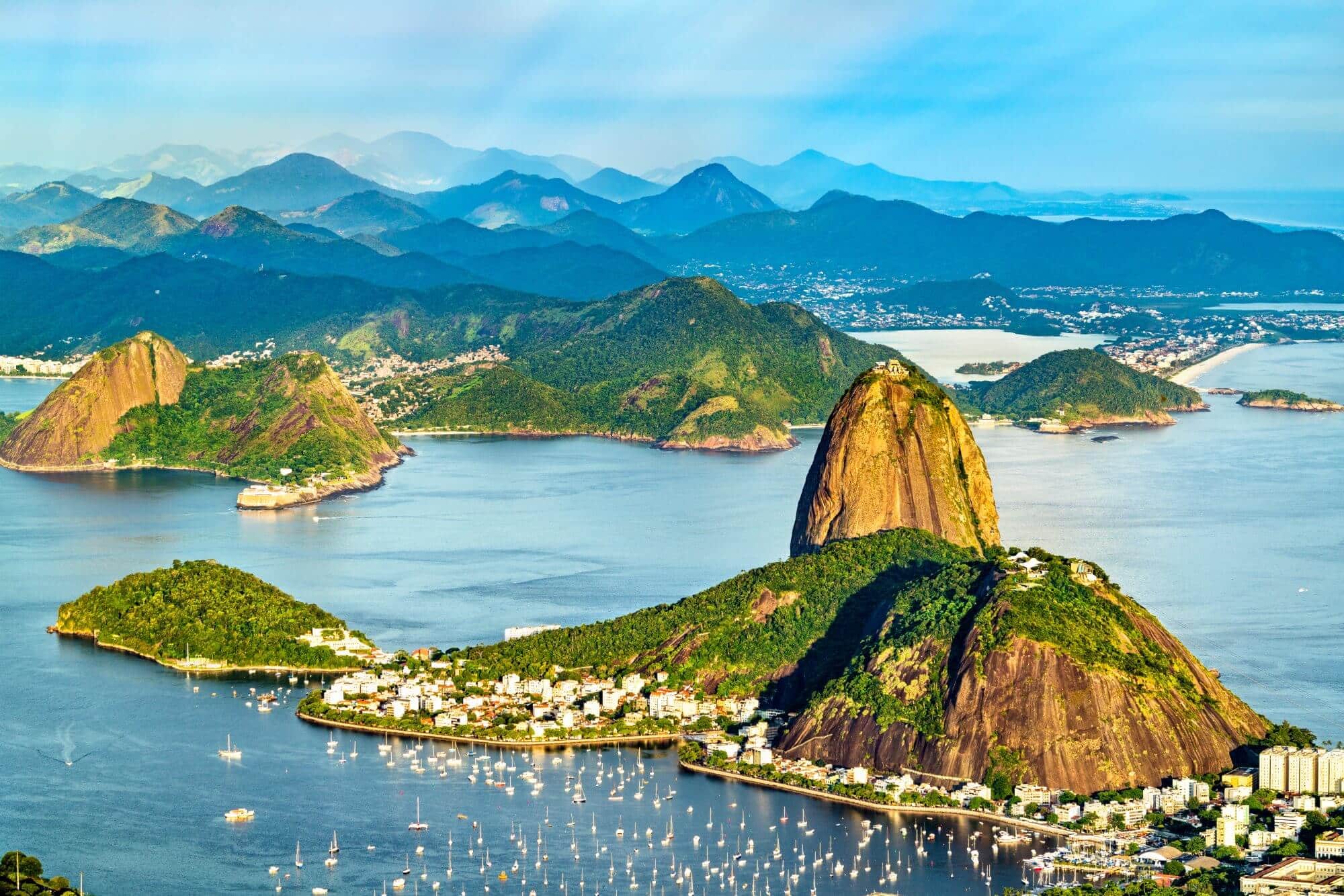
Secure Peace of Mind with Best-Value International Health Coverage
International Citizens Insurance provide free, no-obligation quotes from the leading international health insurance providers with plans tailored to meet your needs. Trusted by thousands of expats worldwide.
Moving to Brazil: visas and other paperwork
Citizens of certain countries (the USA, UK, Canada, etc) do not need visas to enter and stay in Brazil for up to 90 days. Check with a Brazilian consulate in your home country whether you require an entry visa.
If you do, you can apply for a Visit Visa (VIVIS). This allows you to stay in Brazil for up to 90 days.
If you want to stay longer, regardless of your citizenship, you must apply for one of the long-stay visas.
Temporary visa (Visto Temporário)
It allows foreigners to stay in Brazil for a specific period, usually for work, studies, research, or family reunification purposes.
Requirements vary depending on the purpose of the stay. Generally, applicants need to provide a valid passport, a letter of invitation or acceptance from a Brazilian institution, proof of financial means, and a clean criminal record.
Permanent visa (Visto Permanente)
This visa is granted to individuals who intend to reside in Brazil indefinitely. It is suitable for those who plan to establish a business, invest, or retire in the country.
Applicants typically need to provide a valid passport, a clean criminal record, proof of financial stability, proof of residence, and documentation related to the chosen immigration category (e.g., entrepreneur, investor, or retiree).
Work visa (Visto de Trabalho)
This visa is required for foreigners seeking employment in Brazil. It enables them to live and work legally in the country. Applicants usually need a job offer from a Brazilian company, proof of professional qualifications, a valid passport, a clean criminal record, and a work contract or a work permit issued by the Ministry of Labor.
Investor visa (Visto de Investidor)
This visa is designed for foreign investors who intend to invest a significant amount of capital in Brazilian business ventures.
Applicants must meet specific investment criteria set by the Brazilian government, such as creating jobs for locals, contributing to technological development, or supporting sustainable projects.
Temporary residence
After being in Brazil for 90 days, you must register with the Federal Police. Once you complete this process, you will receive a migration registration card (CRNM), which allows you to have temporary residency in Brazil.
Getting a tax number (CPF)
You need to have a taxpayer number (CPF) in order to open a bank account, connect utilities, purchase real estate and more.
CPF stands for Cadastro de Pessoas Físicas meaning Natural Persons Registry, has 11 digits, and may be issued by the Brazilian revenue service in Brazil or Brazilian consulates and embassies abroad.
Ways of getting a CPF
- In your local Brazilian consulate
Visit the website of the Brazilian consulate or embassy in your home country to check if they allow appointment bookings. Look for the English version, find the CPF Application section, and if possible, book a date and time for your appointment.
Complete the CPF application form from the Brazilian Revenue, print a few copies, sign, date, and bring them to your scheduled appointment. The CPF is typically issued within a few days.
2. In Brazil
When in Brazil, you can apply in person in:
- Banks Banco do Brasil or Caixa Economica Federal
- Post Office Correios
- Brazilian Revenue Service
You should take the following documents with you when applying:
- A completed CPF form. You will need help from a Portuguese speaker to fill the form out
- Proof of ID – your passport
3. Via an attorney
This is the easiest way, as everything is done for you. All you need is to email your attorney a copy of your birth certificate, passport, proof of address and let them know your marital status, occupation and phone number.
Permanent residence
After two years of residing in Brazil as a temporary resident, you can apply for a permanent residence permit.
Who's eligible:
- CEO or administrator of a company or a start-up
- Investor
- Senior Researcher or Professional Specialist
- Parent of a child born in Brazil
- Pensioner / Retired
- Spouse of a Brazilian citizen
You can apply for citizenship after four years of permanent residency in Brazil.
Living costs in Brazil
Brazil is much cheaper than many Western countries, making it a very attractive place for expats to move to. Here's how Brazil's cost of living compares to some Northern European and North American countries:
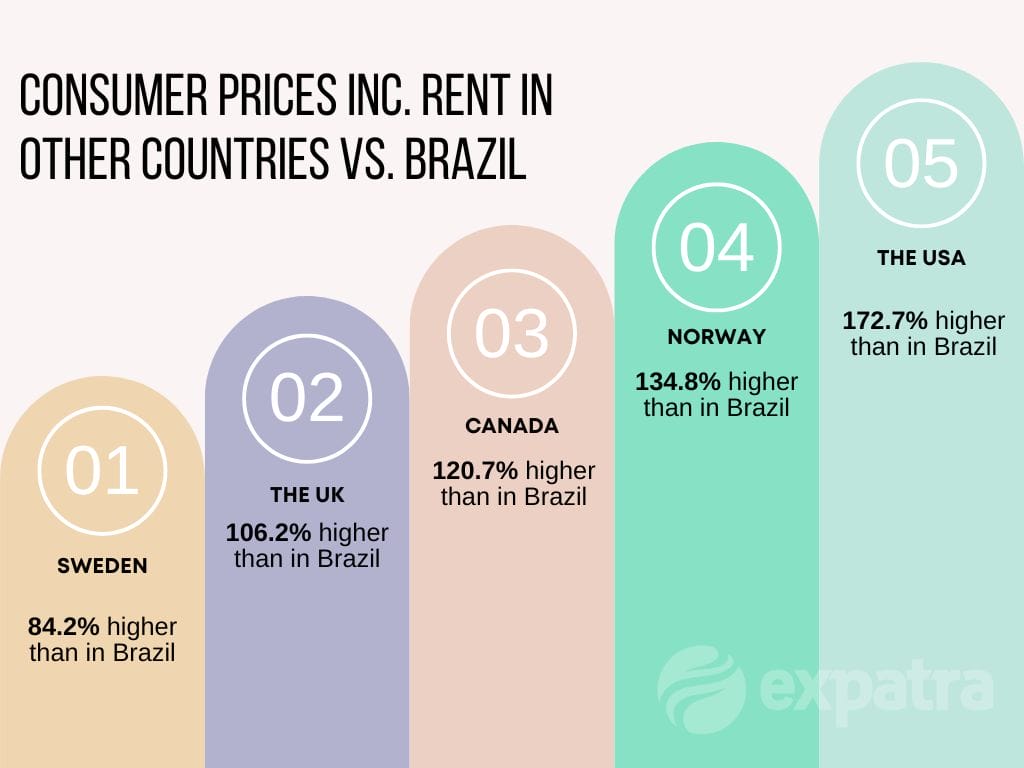
Rent
Renting accommodation in Brazil can be expensive, especially in major cities like Rio de Janeiro and São Paulo. However, living in less central locations can be more affordable.
For instance, renting a one-bedroom apartment in the city center can cost around $500 per month, while a similar apartment outside the city center can cost around $300 per month.
Luxury apartments in the best areas can cost anything between $1,800 and $4,800 per month.
Additionally, some landlords may require a deposit of up to three months' rent.
Here's the average rent in various cities in Brazil:
| City | Average Rent |
|---|---|
| São Paulo | $900 |
| Rio de Janeiro | $850 |
| Salvador | $600 |
| Brasília | $800 |
| Fortaleza | $550 |
| Belo Horizonte | $700 |
Taxes
As an expat in Brazil, you'll be subject to the country's tax laws. The Brazilian government imposes income tax on both residents and non-residents. You'll be taxed on your worldwide income if you're a resident. You'll only be taxed on income earned in Brazil if you're a non-resident. The tax rate varies depending on your income level, ranging from 0% to 27.5%.
Expenses
In addition to rent and the cost of living, you'll encounter other expenses as an expat in Brazil. For instance, healthcare can be pretty expensive, so it's essential to have adequate insurance coverage. You may also need to pay for a work visa, which can cost around R$ 1,000. If you plan on driving, you'll need to purchase car insurance, which can cost around R$ 2,000 per year.
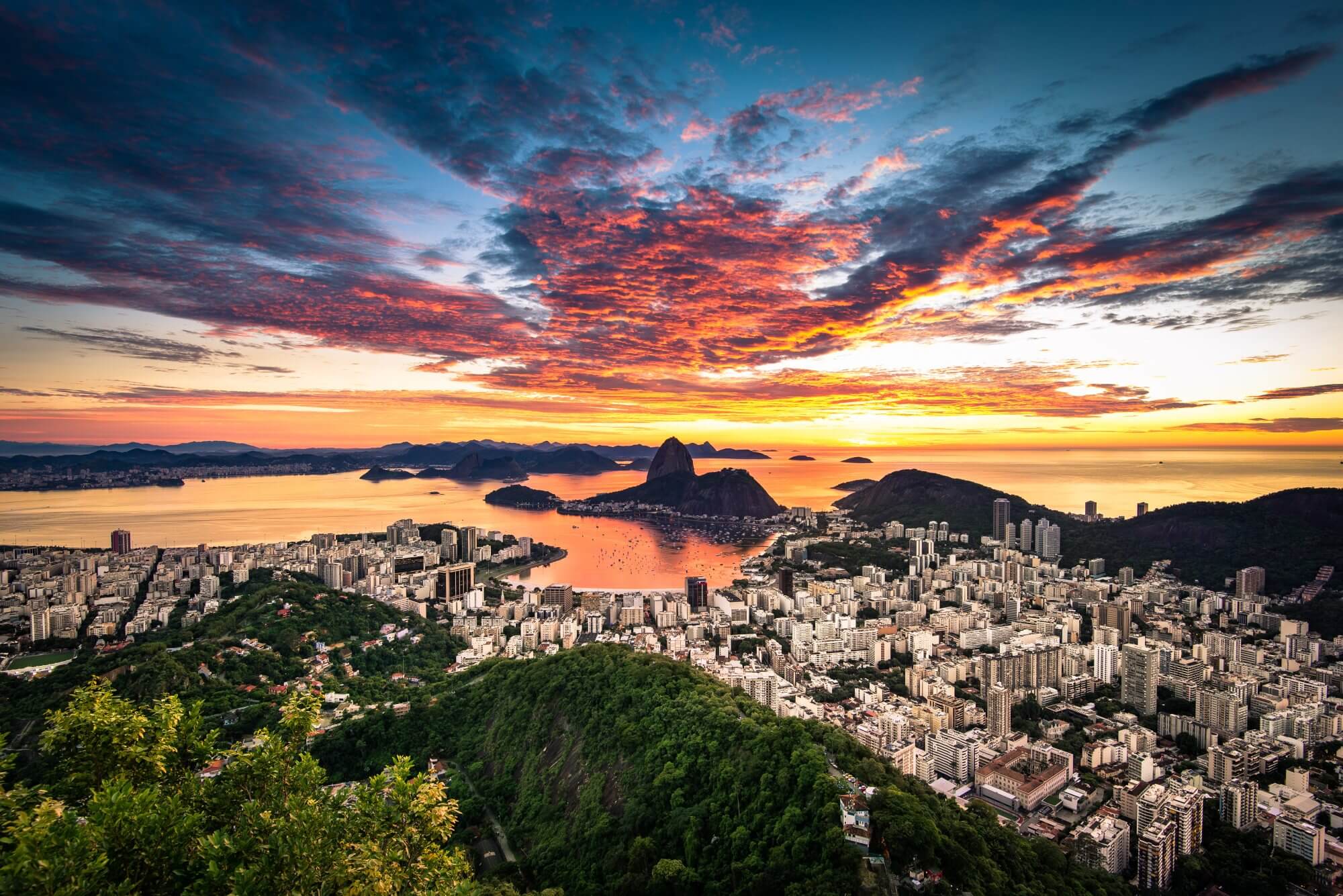
Overall, the living costs in Brazil can be manageable if you plan your budget carefully. Keep in mind that expenses can vary depending on your lifestyle and location.
Brazil as a retirement destination
According to the Expatra Global Retirement Index, Brazil is in the top 30 best places to retire in the world.
The index is based on the Expatra Global Retirement Survey that asks international retirees to rate their retirement destination’s infrastructure, climate, ease of settling down, value for money, friendliness, and other aspects of life in their retirement destination.
Here's how Brazil scores:
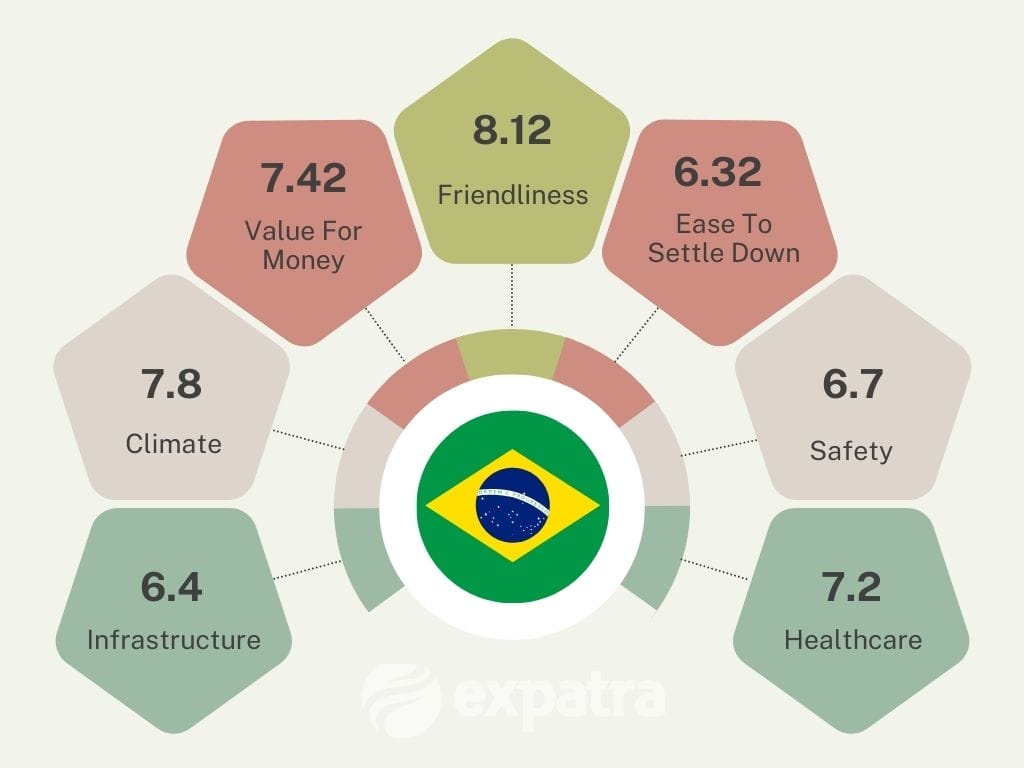
The Retirement Visa allows retired foreign citizens to live in Brazil for up to two years, with the option to renew.
Requirements include retirement status, a stable income, proof of medical insurance coverage, and the income of $2,000 per month.
The initial visa is valid for two years, with no work allowed. Spouses and dependents can't be included, but they may apply for temporary residency.
After two years, you can apply for permanent residency.
Housing and infrastructure
As an expat in Brazil, finding a suitable home is essential to settling in. The housing market in Brazil is expansive, and expats can choose anything from a small apartment to a huge detached house. Here are some things to remember when looking for a place to live in Brazil.
Apartment rental
Most expats opt for renting an apartment in Brazil. Apartments are generally easier to find and more affordable than houses. They also come with amenities like a pool, gym, and security. However, remember that apartments in Brazil are often smaller than you might be used to in other countries.
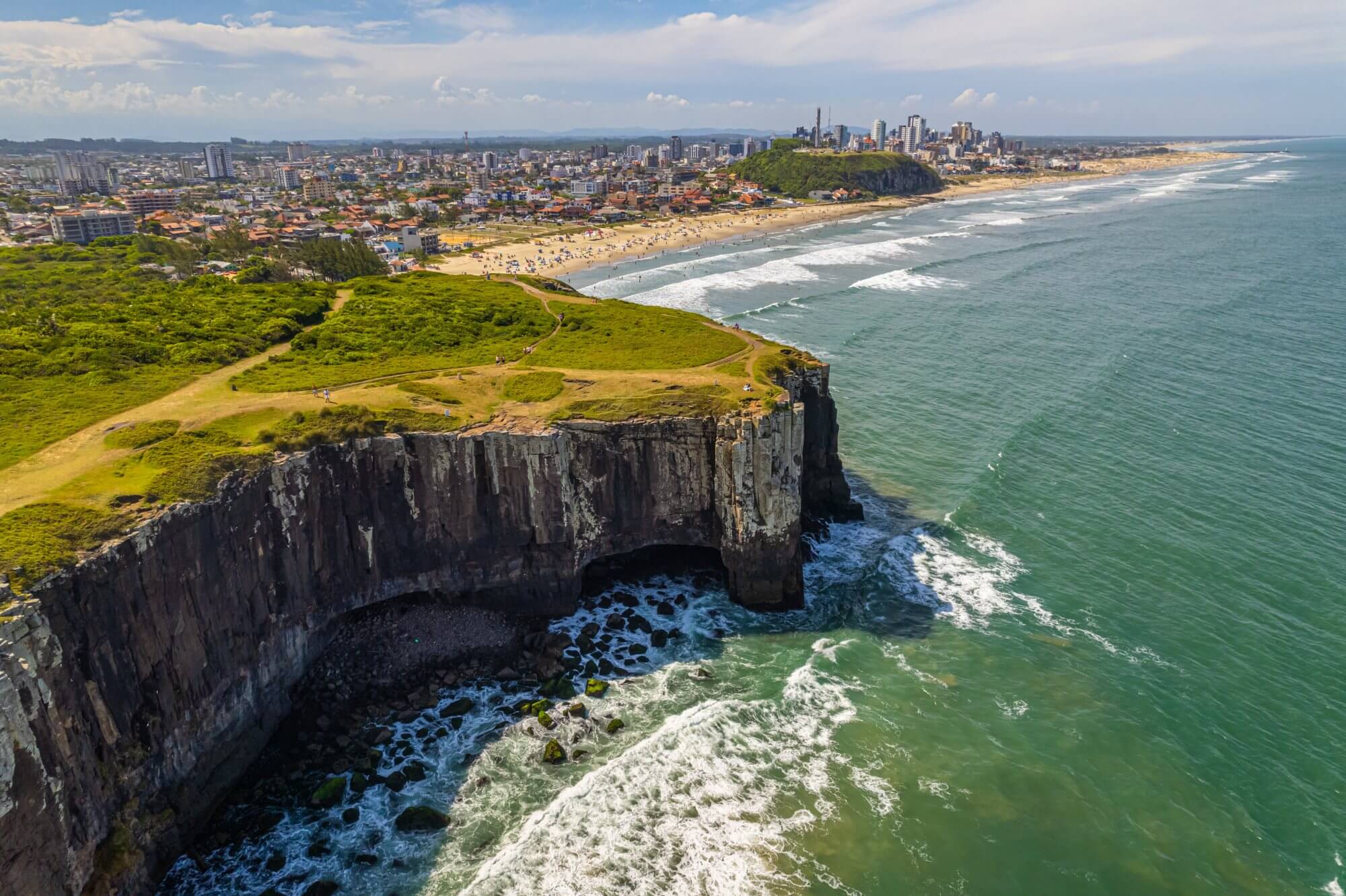
When renting an apartment, clarify what is included in the rental price. Some apartments come furnished, while others are unfurnished. If you opt for an unfurnished apartment, you will need to buy furniture, which can be expensive.
House rental
Renting a house might be a better option if you prefer more space and privacy. Homes in Brazil come in various sizes and styles, from small townhouses to large luxury villas. However, keep in mind that houses are generally more expensive than apartments.
When renting a house, check the property's condition and clarify who is responsible for maintenance and repairs. Some landlords include maintenance in the rental price, while others require tenants to take care of it themselves.
Furniture
You must buy furniture if you opt for an unfurnished apartment or house. Furniture in Brazil can be expensive, so consider purchasing second-hand furnishings or shopping during sales. Some expats also choose to bring furniture from their home country.
Infrastructure
Brazil's infrastructure varies depending on the region you live in. Major cities like São Paulo and Rio de Janeiro have modern infrastructure, while rural areas may have limited access to essential services like water and electricity.
When choosing a location to live, consider the infrastructure in the area. Check if the neighborhood can access public transportation, hospitals, schools, and supermarkets. Remember that traffic can be a significant issue in large cities, so try to find a location close to your workplace.
Expat communities in Brazil
Moving to a new country can be daunting, but finding a supportive expat community can make settling down easier. Brazil has a large expat community, with many living in major cities such as Sao Paulo, Rio de Janeiro, Brasilia, Curitiba, and Florianópolis. Each of these cities has its unique culture, and finding a community that fits your interests and needs is essential.
Sao Paulo
Sao Paulo is the largest city in Brazil and has a thriving expat community. The city has a diverse population, with people from around the world. Many expat groups and organizations exist in Sao Paulo, including the American Society of Sao Paulo, the British and Commonwealth Society, and the Canadian Club. These groups organize social events, cultural activities, and networking opportunities for expats.
Rio de Janeiro
Rio de Janeiro is known for its beautiful beaches, lively nightlife, and vibrant culture. The city has a large expat community, with many foreigners living in neighborhoods such as Ipanema, Copacabana, and Leblon. Several expat groups in Rio de Janeiro include the American Society of Rio de Janeiro and the British and Commonwealth Society. These groups organize events such as happy hours, cultural tours, and charity fundraisers.
Brasilia
Brasilia is the capital of Brazil and has a growing expat community. The city is home to many foreign embassies and international organizations, which attract expats worldwide. There are several expat groups in Brasilia, including the Brasilia International Women's Club and the Brasilia International Rotary Club. These groups organize social events, cultural activities, and charity projects.
Curitiba
Curitiba is a cosmopolitan city in southern Brazil with a small but active expat community. The city is known for its green spaces, cultural attractions, and high quality of life. There are several expat groups in Curitiba, including the Curitiba International Friends Club and the Curitiba International Women's Club. These groups organize events such as coffee mornings, language exchanges, and cultural outings.
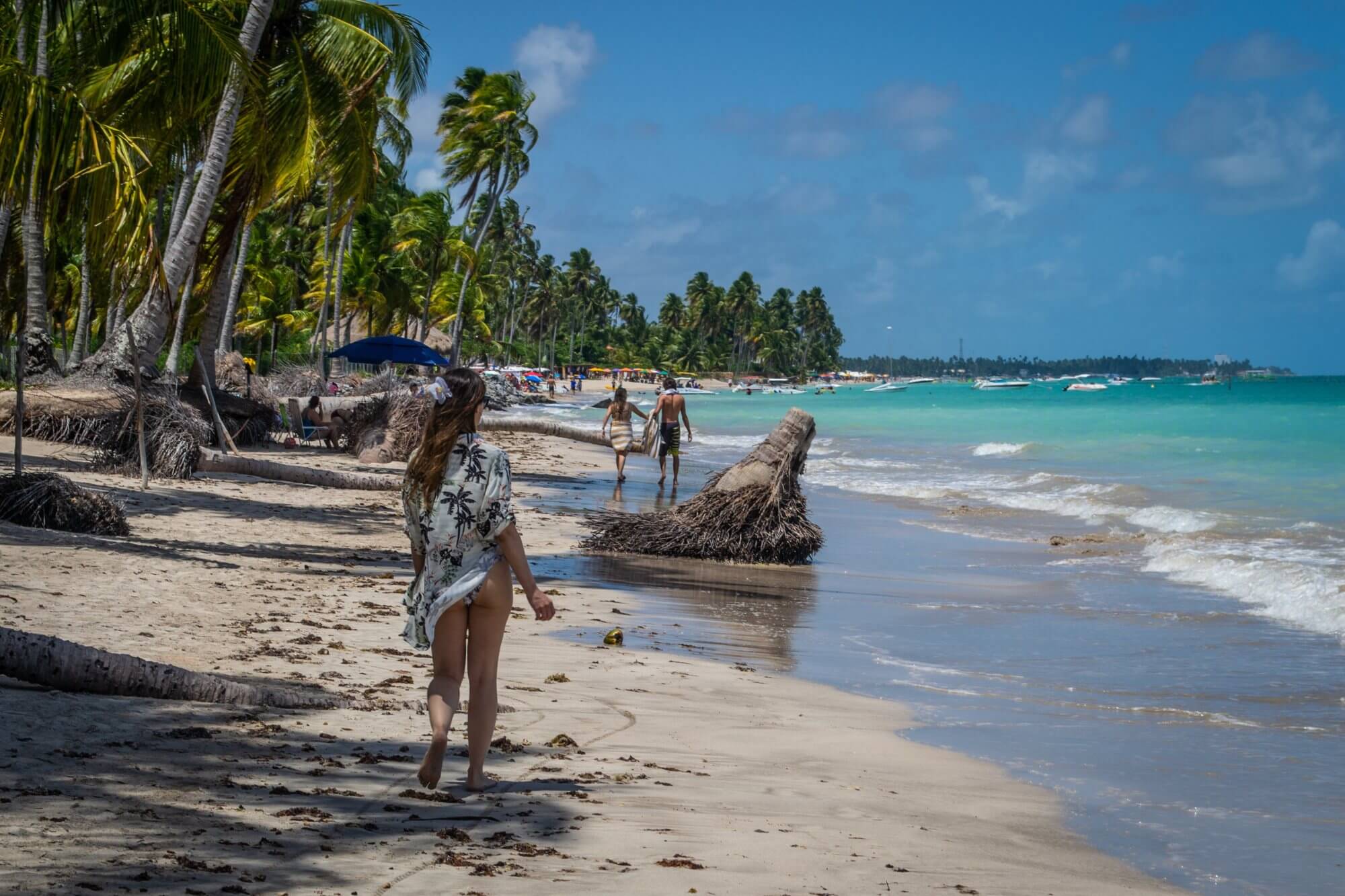
Florianópolis
Florianópolis is a picturesque island city in southern Brazil with a growing expat community. The city is known for its beaches, surfing, and laid-back lifestyle. There are several expat groups in Florianópolis, including the Florianópolis International Women's Club and the Florianópolis Expat Meetup Group. These groups organize events such as beach cleanups, hiking trips, and language exchanges.
Read more in our Living In Florianópolis guide.
Safety
Brazil has a reputation for high levels of crime, including violent crime. Taking precautions to stay safe is essential, such as avoiding wearing expensive jewelry or carrying large amounts of cash.
Be aware of your surroundings and try to avoid walking alone at night, especially in areas that are known to be dangerous. Researching the safety of the neighborhood you plan to live in is also a good idea before you move.
Healthcare
Brazilian permanent residents and foreigners within Brazilian territory have access to public healthcare through the Unified Health System (Sistema Único de Saúde, SUS).
SUS is universal and offers free healthcare services to all.
As a resident, you can access all the public healthcare services offered in Brazil. However, overcrowding and long waiting times mean many expats choose private facilities.
Public healthcare - SUS card
The SUS card, short for Brazil's Unified Health System (Sistema Único de Saúde), is essential for accessing public healthcare. This card allows access to a patient's health record across the Unified Health System network.
You can get an SUS card in municipal offices, hospitals, clinics, or health centers. Required documents include a Brazilian ID or birth certificate, proof of residence, CPF (Individual Tax Payers Number), and, if applicable, marriage or divorce certificates.
With your SUS card you can visit a basic SUS unit (posto de saúde or clínica da família) when you need, which may refer you to another doctor or hospital if necessary.
Public healthcare covers:
- General practitioner and specialist consultations
- Examinations and tests
- Hospitalization in an approved public or private sector center
- Medicines listed as essential and those supplied in the hospital
Private health insurance
Complementary to the SUS
To cover the expenses not covered by the SUS, you can obtain complementary insurance. The main two options are:
- planos de saúde (health plans) provide access to a local network of affiliated doctors, clinics, and hospitals;
- cooperativas medicas (health co-ops) give access to all care services provided by a single hospital in exchange for a contribution.
Local private providers
The average cost of medical insurance for an expat aged over 50 that includes checkups, medicine, hospitalization with a private room, dental, and eye care is around $150.
International insurance
Expats are advised to get international health insurance to ensure they have access to high-quality healthcare and can avoid the public system's long wait times and limited options.
International health insurance can be quite expensive. To make sure you get the best value for money, compare international health insurance options from various providers to find the best deal.
Many private health insurance plans will also cover emergency medical evacuation, which can be a lifesaver in a severe illness or injury.
Education in Brazil
As an expat in Brazil, you may be researching the education system in the country. Here is what you need to know.
The language barrier
The language barrier is one of the biggest challenges for expat families in Brazil. Portuguese is the official language of Brazil, and while some international schools may offer English classes, most schools in Brazil teach in Portuguese. This can make it difficult for non-Portuguese-speaking children to adjust to a new school environment.
To overcome this language barrier, it is recommended that expat families learn Portuguese as soon as possible. This will help children with their schoolwork and make it easier to navigate daily life in Brazil. Many language schools throughout Brazil offer Portuguese classes for foreigners.
International schools
Several options are available if you are looking for an international school in Brazil. These schools offer classes in English and follow a curriculum similar to schools in the United States or the United Kingdom. Some of the most popular international schools in Brazil include:
- American School of Brasilia
- Graded School Sao Paulo
- Pan American School of Bahia
- British School Rio de Janeiro
International schools in Brazil can be expensive, with tuition fees ranging from $10,000 to $30,000 per year. However, they offer high-quality education and can help expat children adjust to their new surroundings more easily.
It is important to note that admission to international schools in Brazil can be competitive, so it is recommended that you apply as early as possible. Some schools may require students to take an entrance exam or submit previous academic records.
Brazilian climate and geography
Brazil is a country of vast diversity in terms of its climate and geography. As an expat, you must familiarize yourself with the various regions and their unique characteristics.
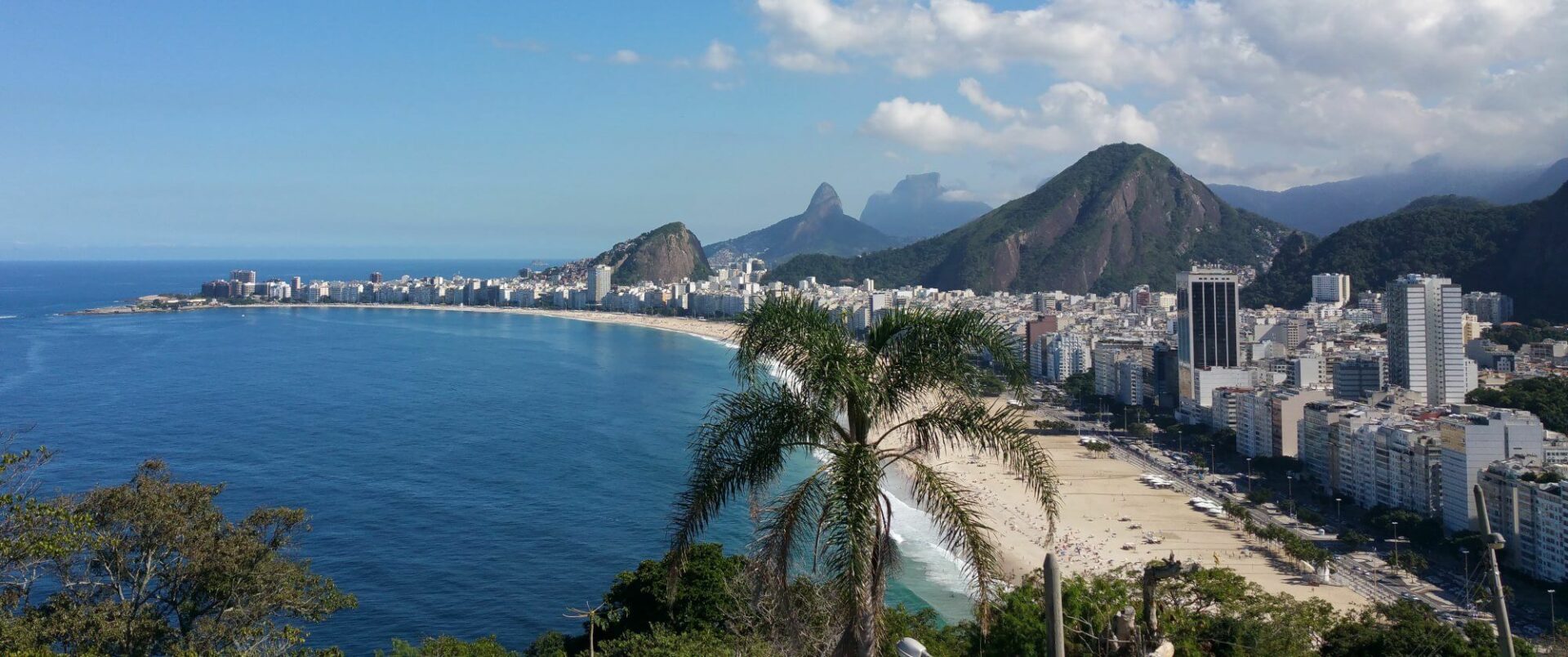
Weather
Brazil has a predominantly tropical climate, with high temperatures and humidity levels throughout the year. However, weather patterns can vary significantly depending on the region. Coastal areas tend to be more humid, while inland regions have a drier climate.
In southern Brazil, winters can be pretty cold, with temperatures dropping below freezing in some areas. In the northeast, the climate is generally hot and dry, with little rainfall. The central regions of Brazil experience a wet season from November to April, while the Amazon Rainforest has a humid and rainy climate all year round.
Climate
North
A tropical climate throughout the year: high temperatures and high humidity. It has a wet and dry season, with heavy rainfall from December to May and drier conditions from June to November. The average annual temperature ranges from 25°C to 28°C.
Northeast
A diverse climate, varying from arid and semi-arid in the interior to tropical along the coast. The interior regions experience high temperatures and low rainfall, with the "Sertão" being a semi-arid zone. The coastal areas have a tropical climate with warm temperatures and abundant rainfall. The average annual temperature ranges from 25°C to 28°C.
Central-West
A tropical wet and dry climate. It has a distinct wet and dry season, with high temperatures throughout the year. The rainy season is from October to April, and the dry season is from May to September. The average annual temperature ranges from 24°C to 28°C.
Southeast
A transitional climate between tropical and subtropical. Summers are generally hot and humid, with frequent rainfall, while winters are mild and relatively dry. The average annual temperature ranges from 18°C to 24°C.
South
A subtropical climate. Summers are warm and humid, with frequent rainfall, while winters are cooler and drier. Frost and occasional snowfall can occur in some areas during the winter months. The average annual temperature ranges from 15°C to 22°C.
Beaches
Brazil is famous for its stunning beaches, attracting millions of tourists annually. Some popular beach destinations include Rio de Janeiro, Florianopolis, and Salvador. The beaches in Brazil are known for their beautiful scenery, warm waters, and vibrant culture.
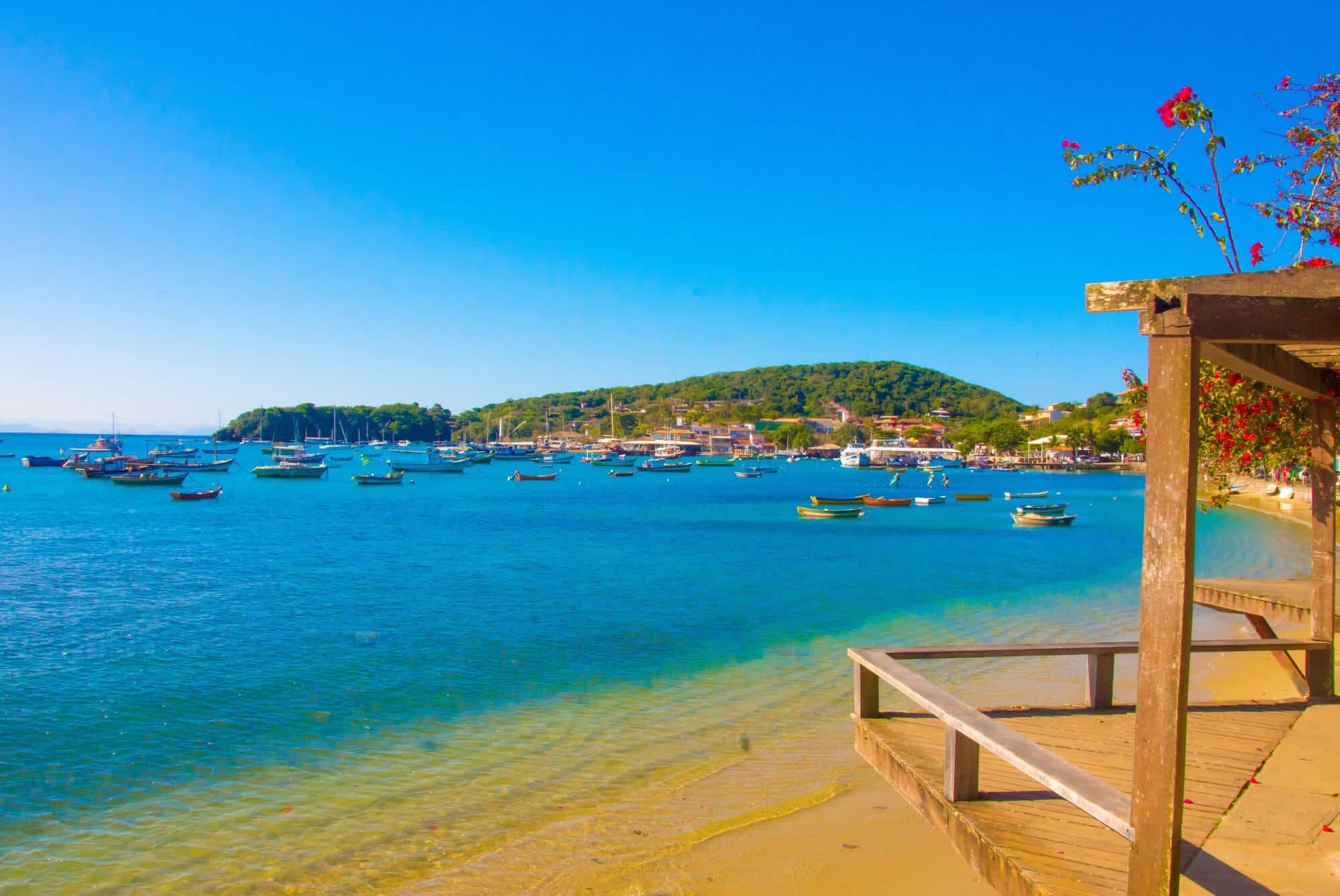
If you plan to live near the beach, it's essential to research the local climate and weather patterns. Coastal areas can be prone to storms and flooding, especially during the rainy season. It's also important to be aware of safety concerns, such as strong currents and high waves.
Amazon rainforest
The Amazon Rainforest is one of Brazil's most iconic natural landmarks. It covers over 60% of the country's land area and is home to many plant and animal species. The climate in the Amazon is hot and humid, with heavy rainfall throughout the year.
If you plan to visit the Amazon, taking precautions to protect yourself from the elements is essential. Mosquitoes and other insects can be a problem, so bringing insect repellent and wearing long-sleeved clothing is recommended. It's also necessary to research the safety risks associated with visiting the Amazon, such as the risk of contracting diseases like malaria and yellow fever.
Brazil's climate and geography offer many opportunities for expats to experience new cultures and natural wonders. Whether you're interested in exploring Brazil's beaches, rainforests, or other regions, it's essential to research and take precautions to stay safe and healthy.
Brazilian lifestyle
As an expat in Brazil, you will experience an exciting and upbeat lifestyle deeply rooted in the country's culture, language, food, and nightlife.
Culture
Brazil is known for its diverse and colorful culture, influenced by its indigenous, African, and European heritage. The country's culture is reflected in its music, dance, art, and festivals. One of the most famous festivals in Brazil is Carnival, which is celebrated in February or March and is a time of music, dance, and colorful parades. As an expat, you can immerse yourself in this vibrant culture and participate in these festivities.
Language
The official language of Brazil is Portuguese. As an expat, learning Portuguese can be a fantastic way to connect with the locals and better understand the country's culture. However, many Brazilians speak English, especially in the larger cities, so you can get by without knowing Portuguese.
Food
Brazilian cuisine is diverse and delicious, with influences from African, European, and indigenous cultures. Some popular dishes include feijoada, a hearty stew made with black beans and meat, and churrasco, a barbecue-style meat dish. As an expat, you can also try street food, such as coxinha, a deep-fried pastry filled with chicken, or pão de queijo, a cheesy bread roll.
Nightlife
Brazil is renowned for its vivacious nightlife, with diverse bars, clubs, and music venues. Some of the most popular nightlife destinations are in Rio de Janeiro and São Paulo, where you can dance the night away to samba, funk, and other Brazilian music genres. The country is also known for its party scene, with events like the New Year's Eve celebration on Copacabana Beach.
Living in Brazil as an expat offers a distinctive and exhilarating lifestyle deeply rooted in the country's culture, language, food, and nightlife.
Things to bear in mind when moving to Brazil
The language barrier is one of the first things you must consider when living in Brazil. Portuguese is the official language of Brazil, and while many Brazilians speak English, it is still essential to learn some basic Portuguese. This will help you navigate daily life and make it easier to connect with locals and fully experience the culture.
Another essential aspect to consider when living in Brazil as an expat is the cost of living. While Brazil is generally an affordable country, the cost of living can vary greatly depending on where you choose to live. Cities like São Paulo and Rio de Janeiro are more expensive, while smaller cities and towns can be more affordable. Doing your research and creating a budget that works for you is essential.
Concluding thoughts
Living in Brazil as an expat can be an experience of a lifetime. You'll be able to immerse yourself in a new culture, learn a new language, and explore one of the most beautiful countries on the planet. However, it's also essential to be aware of the downsides of living in Brazil.
While Brazil has a lot to offer regarding quality of life, there are also some challenges you may face daily. For example, crime rates in Brazil are higher than in many other countries, and it's essential to take precautions to keep yourself safe. Additionally, the cost of living in Brazil can be high, especially in major cities like Rio de Janeiro and Sao Paulo.
Despite these challenges, many expats find that the benefits of living in Brazil outweigh the downsides. Brazil is known for its friendly people, vibrant culture, and beautiful landscapes. Whether you're interested in exploring the Amazon rainforest, relaxing on the beach, or experiencing the excitement of Carnival, there's something for everyone in Brazil.
If you're considering moving to Brazil as an expat, it's essential to do your research and prepare accordingly. Make sure you have a solid understanding of the culture, language, and customs before you arrive. It's also a good idea to connect with other expats in Brazil, as they can provide valuable advice and support.
Overall, living in Brazil as an expat can be both a challenging and rewarding experience. With the right mindset and preparation, you can make the most of your time in this stunning country.
Frequently Asked Questions
What are some of the safest cities in Brazil for expats to live in?
Brazil is a large country with a diverse range of cities and regions, each with their own unique safety concerns. Some of Brazil's safest cities for expats include São Paulo, Rio de Janeiro, and Brasília. These cities have a lower crime rate than other cities in Brazil, but it is still important to exercise caution and be aware of your surroundings.
How much money is needed to live comfortably in Brazil as an expat?
The cost of living in Brazil can vary depending on your city and lifestyle. As an expat, you should expect to spend around $1,850 to $2,200 monthly to live comfortably. This includes rent, utilities, food, transportation, and other daily expenses.
What are some of the daily life experiences of expats living in Brazil?
Living in Brazil as an expat can be an exciting and enriching experience. You can enjoy the vibrant culture, delicious food, and beautiful scenery. However, you may also encounter language barriers, cultural differences, and bureaucratic processes.
What is the expat community like in Brazil, particularly for British citizens?
Brazil has a large expat community, including British citizens. The diverse and welcoming community has many opportunities to meet other expats and locals. There are also several organizations and groups that cater to the needs and interests of British expats.
Is Brazil generally friendly to foreigners who want to live there?
Brazil is generally friendly to foreigners who want to live there. However, it is important to follow local laws and customs and respect the culture and traditions. Learning Portuguese can also help you to integrate into the local community and make friends more easily.
What are some of the most beautiful places to live in Brazil as an expat?
Brazil has many beautiful places to live, each with its unique charm. Some of the most popular destinations for expats include Rio de Janeiro, Florianópolis, Salvador, and São Paulo. These cities offer a mix of natural beauty, cultural attractions, and modern amenities.
Other Latin American destinations to consider:
- Living in Argentina as an expat
- Living in Chile as an expat
- Living in Costa Rica as an expat
- Living in Mexico as an expat
- Living in Panama as an expat
- Living in Paraguay as an expat
Helpful external links:
- Brazilian Ministry of Health website - healthcare information.
- All about visas and requirements - the government website.
- Immigration public services
Secure Peace of Mind with Best-Value International Health Coverage
International Citizens Insurance provide free, no-obligation quotes from the leading international health insurance providers with plans tailored to meet your needs. Trusted by thousands of expats worldwide.



